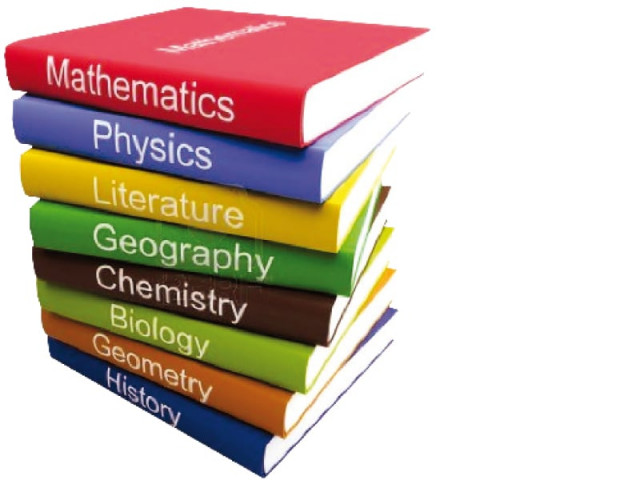Slump in sales: Booksellers going out of business
Dozens of bookstores in twin cities have closed in recent years, remainder survive on textbook sales.

Slump in sales: Booksellers going out of business
Muhammad Imdad has been running a bookstore in Sector I-10/1 for over a decade. He says people have lost interest in reading for pleasure. He says the number of visitors to his shop has trickled down to only five per cent of the early days. “People are now too occupied with TV channels, social media and the internet to find time for books.” He said people willing spend thousands on their meals but not a few hundred on a book.
Imdad said he is compelled to carry on because he does not know any other business. “I am a poet and I love to be with these books all the time,” he said.
While a number of booksellers in Islamabad have closed their shops, many other are surviving on the sales of school and university textbooks. The politics of language has also impacted Urdu publishing, with the new generation turning towards English.
Imdad said the media should promote book reading. “There was a time when programmes like ‘Kasooti’ were aired on TV and people like Zia Muhyeddin, Obaidullah Baig, Mustansir Hussain Tarar and Ashfaq Ahmed hosted TV programmes. They inspired people to read books.”
Muhammad Ali, a student at the Arid Agriculture University Rawalpindi, said there is no need to buy prints when you have an internet connection. “Reading books is boring in today’s fast-paced world. There are other ways available to acquire information.”
Aftab Ahmad, a bookseller in Saddar, said many customers believe books are overpriced when there is actually only a slim profit margin.
Ahmad said Umaira Ahmad and Nimra Ahmad are the most popular fiction writers with the youth these days. “Writers such as Intizar Hussain, Saadat Hassan Manto and Ismat Chughtai are not the choice of the people. While most girls like Wasi Shah, hardly anybody knows about Noon Meem Rashid”
He said sales of collections of Faiz Ahmad Faiz and Allama Iqbal’s works have also fallen. “Everybody has memorized verses such as, ‘Kash main tere haseen haath ka kangan hota” but how many know about ‘Hassan Koozagar’,” he questioned.
He said teachers should inculcate the habit of reading for pleasure in their students. “But teachers do not even read books themselves.”
He also regretted that successive governments have done little to improve education standards. “The seriousness of the government is visible from the fact that education sector receives a meager share of the GDP. Schools are understaffed and teachers are unmotivated,” he remarked.
Arshad Mehmood, a bookseller at Rawalpindi’s Committee Chowk, told The Express Tribune that his customer base is now mostly women who come in to buy digests such as Pakeeza and Shuaa, while books by television personalities also do well.
“Apart from digest, the only books people come to buy are dictionaries, school and college course books, and religious books of various sects,” he said.
Dr Aasim Sajjad Akhtar, who teaches at Quaid-i-Azam University’s National Institute of Pakistan Studies (NIPS), said students prefer rote learning over understanding the essence of a subject. He held education system responsible for this.
He regretted that education has always been last on government priority lists. Akhtar also questioned the quality and nature of the literature being sold in the markets.
“Publishers don’t care about content and quality. We publish writers who sell, regardless of what ideas they are promoting,” said Arshad Malik, a bookseller and publisher at the Committee Chowk. He said the writers such as Umaira Ahmad became popular after 9/11.
Sunday bazaars, where vendors sold old books and magazines at discounted rates, are also becoming a thing of the past. The number of old book vendors in Saddar, Rawalpindi, has come down to single digits.
Munammad Amjad, a Sunday bazaar bookseller, said he was considering quitting as he can no longer make ends meet now by selling old books.
Published in The Express Tribune, August 25th, 2014.



















COMMENTS
Comments are moderated and generally will be posted if they are on-topic and not abusive.
For more information, please see our Comments FAQ